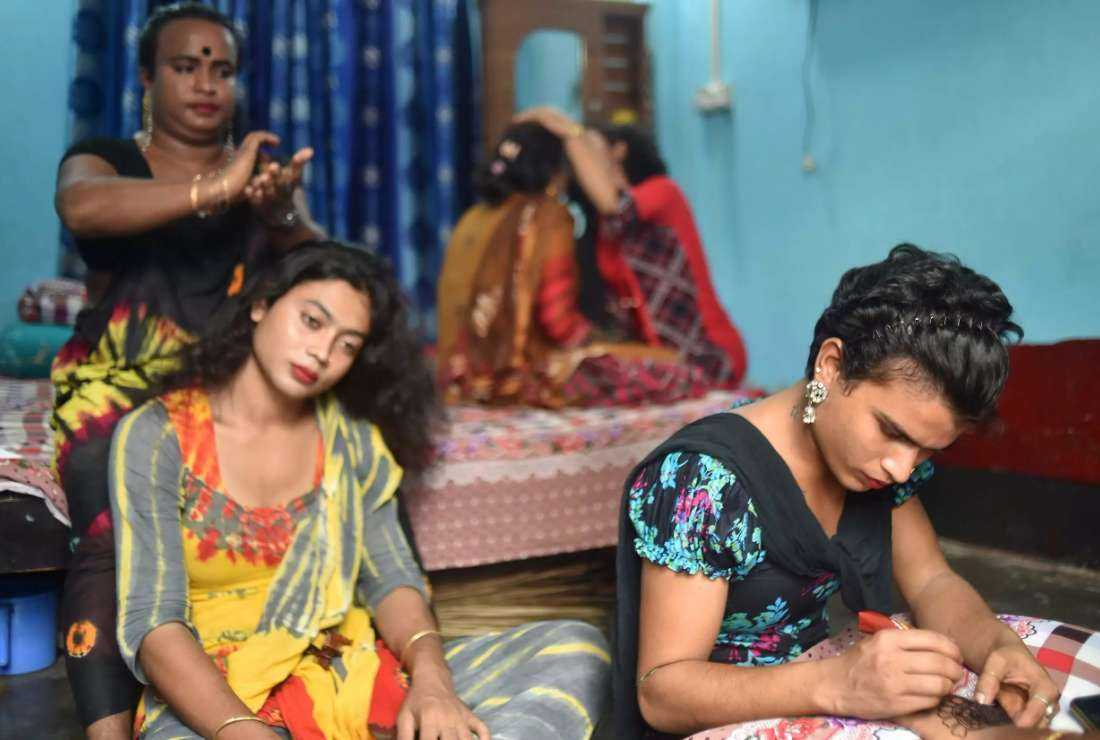
Artificial gender transformation is forbidden in Islam, says Islamist leader.
Islamic hardliners in Bangladesh have launched a campaign to deter a proposed law that aims to protect the rights of the marginalized transgender community in the Muslim-majority nation.
The campaign by the National Fatwa Board includes publishing literature and leaflets with anti-transgender messages and holding seminars and press conferences, sources confirmed.
The board, composed of 17 top Islamic clerics and jurists, is a platform under the National Qawmi Madrasa Education Board, a state-recognized body that oversees Islamic education in thousands of madrasas (Islamic seminaries) not directly regulated by the government.
The campaign allegedly aims to propagate that transgender people are cursed and should be banished.
Muslims should oppose any legal recognition of transgender people as artificial gender transformation is forbidden in Islam, said Mizanur Rahman Sayed, a member of the board.
“Artificially transforming a man into a woman or a woman into a man is intervening in Allah’s creation,” he said.
“A man appearing as a woman or a woman appearing as a man is cursed,” Rahman claimed.
The board’s members met in capital Dhaka on Jan. 13 and unanimously decided to prevent the government from passing the proposed law, sources confirmed.
The board members said in the name of protecting transgender people the law seeks to promote homosexuality and import ‘abominable’ Western culture into Bangladesh.
“It is our responsibility to counter such things, to prevent something not allowed in the Quran from happening,” Rahman said.
Islamic hardliners have been up in arms against transgender people in Bangladesh, citing Section 377 of the British colonial era Penal Code that criminalizes any sexual behavior “against the order of nature.”
Clerics at the Hathazari Madrasa, one of the oldest and largest Qawmi madrasas located in southeast Chattogram district, declared transgender people haram (forbidden) on Dec. 27 last year.
Earlier in November, North South University, a leading private education institute in Dhaka, faced public backlash after it barred a prominent transgender activist from speaking during a women’s career carnival due to protests from a group of conservative teachers and students.
In socially and religiously conservative Bangladesh, LGBTQ people have long faced ostracism and discrimination, rights groups say.
A rare boost came for the Hijra community when the government recognized them as the third gender in 2013. Hijra is a collective term used to describe eunuchs, intersex and transgender people in South Asia.
Islamic hardliners say the campaign aims to clarify hijra and transgender are not the same.
Hijras are born naturally, with incomplete sexual organs, but transgender people represent the community who alter their sexual identity, the Fatwa board members said.
The Islamist campaign is surprising and frightening, said Tanisha Yeasmin Chaity, 34, a transgender woman and activist.
“Gender identity and homosexuality are not the same,” she said, countering the Islamists’ argument that transgender people promote homosexuality.
“This campaign is a threat to our people,” she said.
Bangladesh had 12,600 hijras in 2023, according to the latest census data.
There is no official data on transgender population. Transgender activists estimate the number of people who identify as transgender is about 50,000.
Activist Yeasmin says transgender people face various struggles and stigma in the country.
“Nobody wants us to stay with them or get employed anywhere,” said the beautician who goes by a single name.
She said due to her gender identity she was forced to quit several jobs to escape humiliation.
However, in recent years public opinion has started to favor transgender people like her thanks to reports in the national media.
“The campaign comes just when the people began to sympathize with our life,” she lamented.
Yeasmin, who is pursuing a Master’s degree at Bangladesh Open University, fears such a hate campaign can put an end to her dream of pursuing higher education and becoming self-reliant.
The government’s Social Welfare Ministry has drafted the law over the past six months.
Social Welfare Department’s deputy director Shah Jahan said that the act aims at ending discrimination against transgender people.
The law sets ways of determining who is a transgender man or a woman, ensuring their right to education, healthcare and land ownership, he said.
Religious Affairs Minister Faridul Haque Khan told journalists that he was unaware of the Islamist campaign and declined to comment further.
Bishop Gervas Rozario, chairman Catholic Bishops’ Justice and Peace Commission said that the state has the responsibility to protect all people.
“All humans are equal to the state,” he said, adding that Christianity does not support artificial gender transformation either.
Islamists can oppose the state’s move if they think it goes against their religion, he said.



